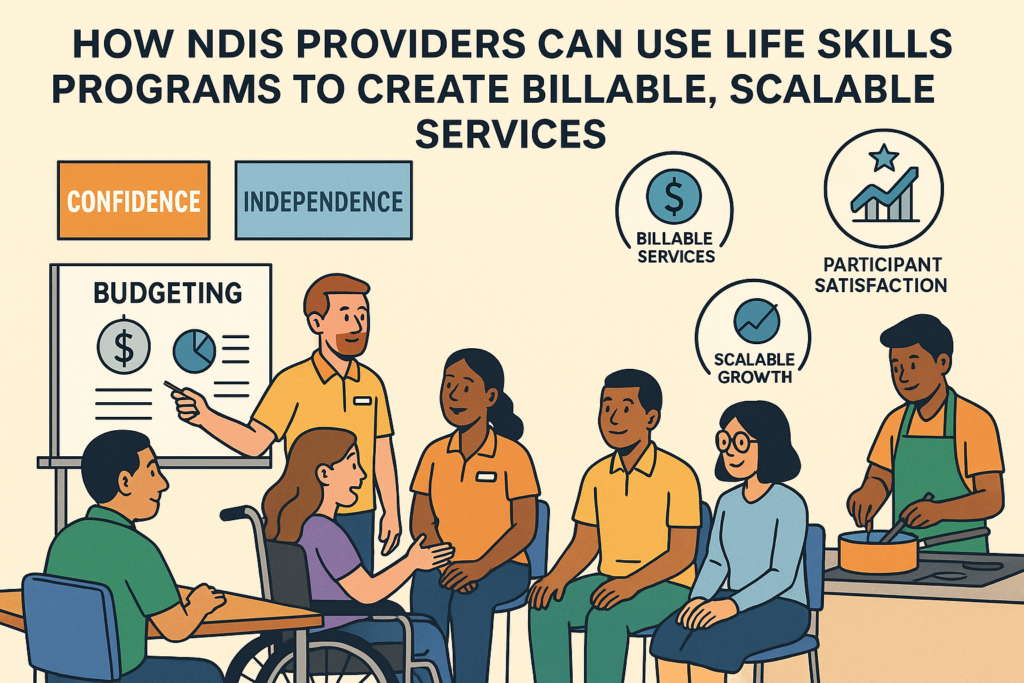Building Capability, Confidence and Community with Life Skills Better Connections
For people with disabilities, learning daily life skills goes beyond simply completing tasks on a checklist—it’s about unlocking enhanced independence, building self assurance and becoming more actively engaged within their
communities. At Life Skills Better Connections, we hold the firm belief that
providing participants with practical, goal oriented life skills is one of the most
impactful ways to effect lasting change.
Daily life skills—such as budgeting, cooking, personal hygiene, time management and social communication—are essential for successfully
navigating daily life. These aren’t merely chores; they form the foundation of
autonomy. Mastering these skills often allows participants to regain control
over their lives, boosting self esteem and decreasing their dependence on
others.Our structured adaptable programs are expressly designed to support
individuals of all abilities in learning and applying these vital skills in a manner
that suits them. Each module emphasizes real world application, featuring
clear learning outcomes aimed at meeting both personal goals and NDIS
Capacity Building funding targets.Learning That Adapts to the Individual
Recognising that no two participants are identical, our approach reflects this diversity. Our programs adapt to align with each individuals abilities, learning styles and aspirations – whether through one on one sessions, small group workshops or peer supported activities. This flexibility ensures that everyone feels supported, respected and empowered.For instance, leaning to manage one’s grocery budget or prepare meals is not merely an acquisition of skills, it represents a gain in independence, dignity and a heightened sense of community involvement.Beyond Skills: Building Confidence and Connection
Our programs, as discussed in our April Blog, illustrate that life skills training transcends the teaching of tasks – it builds individuals. Participants gain confidence as they achieve milestones, make decisions and embrace their progress. This new found confidence often spills over into other life areas, such as forming friendships, exploring new opportunities or engaging in volunteer or employment ventures.Connection emerges naturally from these programs. Whether through shared cooking classes or group discussions on financial management, our initiatives foster peer relationships, mitigate isolation and cultivate a sense of belonging.Why It Matters – For Participants and Providers
Investing in daily life skills education reverberates with positive effects. Participants become more self reliant and engaged, families and carers feel better supported and providrs can deliver valuable, billable services aligning with NDIS objectives. With scalable group formats and pre-designed modules, providers reduce time spent on program development, enabling greater focus on impact.Above all, we’re shaping a future where people with disabilities are recognised, herd and fully integrated-not just within services but also within society.Conclusion
At Life Skills Better Connections, we’re not just teaching life skills, we’re facilitating the discoery of individuals capabilities and heping them reach their potential. As providers, our commitment to inclusive life skills development, furthers a culture of employment, respect and growth for everyone.
